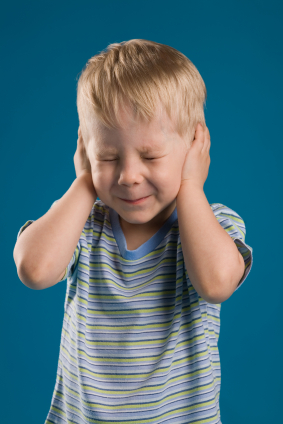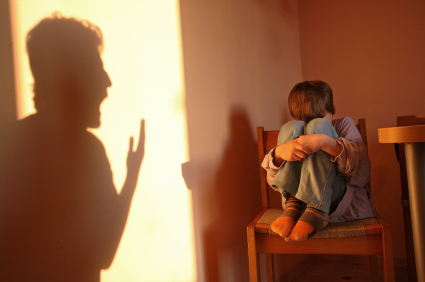Inflammatory Marker IL-6 is Elevated in People with Depression and Those with a History of Childhood Trauma
In a 2018 article in the journal Psychiatry Research, researcher Ana Munjiza and colleagues reported that the inflammatory marker IL-6 was higher in 64 depressed people than in 53 non-depressed people, and that levels of IL-6 among people in the depressed group were significantly correlated with scores on a questionnaire in which participants reported traumas experienced in childhood. They reported more physical abuse, physical neglect, and emotional abuse.
Munjiza and colleagues indicate that trauma in childhood is a risk factor for depression in adulthood, as other researchers have suggested, and that inflammation could mediate the relationship between childhood adversity and depression.
Editor’s Note: IL-6 has been associated with antidepressant treatment resistance. IL-6 is secreted from white cells in the blood and from monocytes from the bone marrow in response to stress. It enters the brain and starts an inflammatory cascade that induces depressive behaviors. Animal studies have shown that if IL-6 secretion is blocked, depressive-like behaviors do not occur.
Another indicator of inflammation is CRP, and elevations in CRP have been associated with poor response to selective serotonin reuptake inhibitor (SSRI) antidepressants, and better response to the noradrenergic tricyclic antidepressant nortriptyline and the dopamine active antidepressant bupropion.
Treatments for depressed people with histories of childhood trauma may include psychotherapy, somatic therapies such as repeated transcranial magnetic stimulation (rTMS) and transcranial direct current stimulation (tDCS), and medication. More research is needed to determine the optimal treatment regimens for this subgroup of depression sufferers, including whether anti-inflammatory drugs could play a helpful role in preventing or treating depression. People with elevated inflammatory markers (such as IL-6, CRP, IL-1, or TNF-alpha) are likely to be better candidates for adjunctive anti-inflammatory treatments than those with normal or low baseline levels of inflammation.
Emotional Abuse Increases Inflammation
Trauma in childhood is a risk factor for depression, and both childhood trauma and depression have been linked to increased inflammation. In a study presented at the 2016 meeting of the Society of Biological Psychiatry, Sarah R. Horn and colleagues found that emotional abuse in childhood predicted high levels of inflammation measured in the blood in adulthood.
Horn and colleagues took blood samples from 35 people with treatment-resistant depression and 28 healthy control subjects. The researchers measured inflammatory markers in the blood and also interviewed the participants about any physical, sexual, or emotional abuse they experienced in childhood. Among all the participants, emotional abuse was linked to elevated levels of several inflammatory markers, including interleukin-6, interleukin-10, interleukin-1a, interleukin-15, and fractalkine.
The researchers suggest that more research is needed to clarify the link between early trauma, depression, and inflammation. How elevated inflammation in people with a history of abuse may influence the effectiveness of different psychotherapies and medications for depression remains to be determined.
Mothers Who Were Abused in Childhood Secrete Less Oxytocin While Breastfeeding
A recent study suggests that women who experienced moderate or severe abuse in childhood secrete less oxytocin while breastfeeding their own children. Oxytocin is a hormone that promotes emotional bonding. The study included 53 women. They breastfed their newborn children while blood samples were collected from the women via IV. Those women with a history of moderate or severe abuse (emotional, physical, or sexual) or neglect (emotional or physical) had lower measures of oxytocin in their blood during breastfeeding than women with no history or abuse in childhood or a history of mild abuse.
A history of abuse or neglect was more common among women with current depression compared to women with a history of depression or anxiety. Women who had never experienced depression or anxiety were least likely to have a history of abuse or neglect.
The study by Alison Steube and colleagues, presented at the 2016 meeting of the Society of Biological Psychiatry, suggests that traumatic events that occur during childhood may have long-lasting effects. These experiences may modulate the secretion of oxytocin in adulthood. Low oxytocin has been linked to depression.
Emotional Abuse in Childhood is a Risk Factor for Bipolar Disorder
 Evidence is growing that stressful events in childhood are associated with an earlier onset of bipolar disorders and a more difficult course of illness than in those who did not experience this type of adversity. Monica Aas and colleagues in Norway have found for the first time that emotional abuse in childhood, especially before age five, also increases risk of bipolar disorder. This study indicates that while bipolar disorder has a genetic component, environmental factors also play a role.
Evidence is growing that stressful events in childhood are associated with an earlier onset of bipolar disorders and a more difficult course of illness than in those who did not experience this type of adversity. Monica Aas and colleagues in Norway have found for the first time that emotional abuse in childhood, especially before age five, also increases risk of bipolar disorder. This study indicates that while bipolar disorder has a genetic component, environmental factors also play a role.
In Norway and France, the research group surveyed patients with bipolar disorder and people in the general population about childhood trauma, including emotional abuse, sexual abuse, physical abuse, emotional neglect, and physical neglect. Among the almost 800 participants, patients with bipolar disorder were twice as likely as control participants to have experienced multiple types of trauma. However, emotional abuse was the only factor specifically linked to bipolar disorder. People who were emotionally abused in childhood were more than twice as likely to develop bipolar disorder in adulthood. Moreover, the more severe the emotional abuse, the more likely it was that a child would go on to develop bipolar disorder.
Among the adults with bipolar disorder, emotional abuse and sexual abuse in childhood predicted younger age of illness onset, more suicide attempts, more rapid cycling, and greater proneness to depression. Emotional or sexual abuse were linked to the most suicide attempts, and sexual abuse was linked to rapid cycling.
More trauma in childhood was also linked to affective instability in adults. Aas’ research was presented at the 14th International Congress on Schizophrenia Research.




